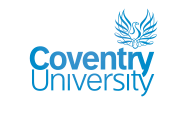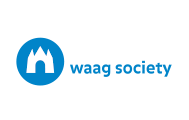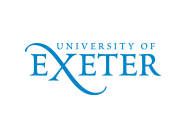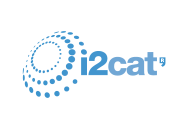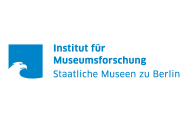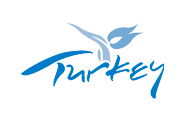

This project has received funding from the European Union’s Seventh Framework Programme for research, technological development and demonstration under grant agreement no 612789
POLICY PAPERS, FORESIGHT STUDIES AND RECOMMENDATIONS
This page contains a range of evidence-based resources into which the main research outputs produced by the RICHES project are distilled. This includes policy reports, recommendations, advisory and advocacy papers, foresight studies, etc.
These practical resources are intended to provide support and advice to decision-makers at all levels, including policy makers, programme owners, cultural managers, public administrators and private entrepreneurs.
POLICY BRIEFS
![]() European Policy Brief. European Minorities and Identity: strengthening relationships for a sense of belonging in the digital era. (April 2016). This policy brief discusses the main findings of the study conducted in RICHES about digital CH websites and their contributions towards the development of a European identity that encapsulates the diversity of communities across the continent. It offers a series of recommendations, which can contribute to the understanding of a European identity and strengthen already existing relationships.
European Policy Brief. European Minorities and Identity: strengthening relationships for a sense of belonging in the digital era. (April 2016). This policy brief discusses the main findings of the study conducted in RICHES about digital CH websites and their contributions towards the development of a European identity that encapsulates the diversity of communities across the continent. It offers a series of recommendations, which can contribute to the understanding of a European identity and strengthen already existing relationships.
![]() European Policy Brief. The Cultural Heritage Institution: Transformation and Change in a Digital Age. (April 2016). This policy brief is concerned with CH institutions in a time of dynamic cultural, social and technological change. Specifically, it considers the multi-faceted impact of DT and the recalibration of the relationship between institutional CH practices and the individual. It advocates that innovation through research and new technologies are essential for bringing the CH of Europe closer to people, the importance of the CH sector to European growth and the recognition of DT as a driver of change in the CH institution.
European Policy Brief. The Cultural Heritage Institution: Transformation and Change in a Digital Age. (April 2016). This policy brief is concerned with CH institutions in a time of dynamic cultural, social and technological change. Specifically, it considers the multi-faceted impact of DT and the recalibration of the relationship between institutional CH practices and the individual. It advocates that innovation through research and new technologies are essential for bringing the CH of Europe closer to people, the importance of the CH sector to European growth and the recognition of DT as a driver of change in the CH institution.
![]() European Policy Brief. The Economic and Fiscal Dimension of Cultural Heritage. (April 2016). This policy brief focuses on the effects of two forms of government support: VAT regulation for CH goods and services and direct subsidies to CH organisations. It presents the results and outcomes of the research that explores the relation between the characteristics of different European countries and the effects of government support in VAT rates for CH organisations, and it describes the actions that can be taken to stimulate a CH-rich and CH-engaged European society.
European Policy Brief. The Economic and Fiscal Dimension of Cultural Heritage. (April 2016). This policy brief focuses on the effects of two forms of government support: VAT regulation for CH goods and services and direct subsidies to CH organisations. It presents the results and outcomes of the research that explores the relation between the characteristics of different European countries and the effects of government support in VAT rates for CH organisations, and it describes the actions that can be taken to stimulate a CH-rich and CH-engaged European society.
![]() European Policy Brief. Towards a Craft Revival: Recalibrating Social, Cultural, Economic and Technological Dynamics. (April 2016). This policy brief makes recommendations for unlocking the potential of the craft sector and craft skills, with a focus on maximising their economic value without undermining their social and cultural value. Policy recommendations are formulated from an holistic perspective, which recognizes the interplay of social, cultural, economic, legal and technological dynamics in determining the standing of craft, and realising its potential.
European Policy Brief. Towards a Craft Revival: Recalibrating Social, Cultural, Economic and Technological Dynamics. (April 2016). This policy brief makes recommendations for unlocking the potential of the craft sector and craft skills, with a focus on maximising their economic value without undermining their social and cultural value. Policy recommendations are formulated from an holistic perspective, which recognizes the interplay of social, cultural, economic, legal and technological dynamics in determining the standing of craft, and realising its potential.
![]() European Policy Brief. Food Heritage and Culture: Changing Spaces of Production and Consumption. (March 2016). The aim of this policy brief is to highlight the growth of community-led food initiatives and the changing spaces of food production and consumption. It shows how food culture can be a force for change and how citizens can co-create cultural heritage around food. It provides some brief examples of community-led food initiatives and makes recommendations for policies which are needed to enable these to thrive.
European Policy Brief. Food Heritage and Culture: Changing Spaces of Production and Consumption. (March 2016). The aim of this policy brief is to highlight the growth of community-led food initiatives and the changing spaces of food production and consumption. It shows how food culture can be a force for change and how citizens can co-create cultural heritage around food. It provides some brief examples of community-led food initiatives and makes recommendations for policies which are needed to enable these to thrive.
![]() European Policy Brief. Co-creation strategies: from incidental to transformative. (August 2015). Co-creation within CH institutions is not a new phenomenon, but the current practice often is project based, run only by the educational staff, met by scepsis from curators and conservators, thus leaving a lot of potential results untouched. This policy brief, based on preliminary research findings, gives a short overview of the potential benefits of co-creative methods in the CH sector, of the current practices and a number of suggestions to further stimulate co-creation in cultural heritage on a strategic level.
European Policy Brief. Co-creation strategies: from incidental to transformative. (August 2015). Co-creation within CH institutions is not a new phenomenon, but the current practice often is project based, run only by the educational staff, met by scepsis from curators and conservators, thus leaving a lot of potential results untouched. This policy brief, based on preliminary research findings, gives a short overview of the potential benefits of co-creative methods in the CH sector, of the current practices and a number of suggestions to further stimulate co-creation in cultural heritage on a strategic level.
![]() European Policy Brief. RICHES Taxonomy of cultural heritage definitions. (July 2015). This policy brief presents evidence and recommendations emerging from the research undertaken to develop the RICHES Taxonomy of terms, concepts and definitions, which aims to: ensure appropriate academic, professional and technical standards for research are met in identifying, analysing and understanding both existing ways and new models for defining CH and CH practices; develop a common CH language to serve the interests of the wider CH community, including policy-makers, cultural ministries of member states, regional, national and state authorities, public administrations, European institutions and researchers and professionals generally.
European Policy Brief. RICHES Taxonomy of cultural heritage definitions. (July 2015). This policy brief presents evidence and recommendations emerging from the research undertaken to develop the RICHES Taxonomy of terms, concepts and definitions, which aims to: ensure appropriate academic, professional and technical standards for research are met in identifying, analysing and understanding both existing ways and new models for defining CH and CH practices; develop a common CH language to serve the interests of the wider CH community, including policy-makers, cultural ministries of member states, regional, national and state authorities, public administrations, European institutions and researchers and professionals generally.
![]() European Policy Brief. Digital Copyright Framework. The move from analogue to digital and new forms of IPR. (June 2015). This policy brief describes how European policy-makers and European cultural heritage institutions should develop European copyright policies and strategies for the cultural heritage sector using the rights to culture and cultural rights as guiding principles. The impact is to lay emphasis on inter alia access to culture, cultural integrity and cultural communication and to develop ways in which copyright can support those goals.
European Policy Brief. Digital Copyright Framework. The move from analogue to digital and new forms of IPR. (June 2015). This policy brief describes how European policy-makers and European cultural heritage institutions should develop European copyright policies and strategies for the cultural heritage sector using the rights to culture and cultural rights as guiding principles. The impact is to lay emphasis on inter alia access to culture, cultural integrity and cultural communication and to develop ways in which copyright can support those goals.
THINK PAPERS
![]() RICHES Think Paper 01. Copyright and Cultural Heritage: Developing a Vision for the Future. This Think Paper raises questions about the relationship between European cultural heritage and copyright in the light of the fundamental and disruptive changes brought about by new and emerging digital technologies and which promise profound transformation in the future. It advocates that a human rights approach should be taken to the use and re-use of our cultural heritage and that copyright should be used as a tool to support cultural rights.
RICHES Think Paper 01. Copyright and Cultural Heritage: Developing a Vision for the Future. This Think Paper raises questions about the relationship between European cultural heritage and copyright in the light of the fundamental and disruptive changes brought about by new and emerging digital technologies and which promise profound transformation in the future. It advocates that a human rights approach should be taken to the use and re-use of our cultural heritage and that copyright should be used as a tool to support cultural rights.
![]() RICHES Think Paper 02. New Forms of Artistic Performances and the Future of Cultural Heritage. How can dance and performance artists interact with digital technologies to create new artefacts and events? How are new skills, which can coexist and complement traditional skills, developing in today’s performing arts landscape? In which ways are cultural expressions from the past being currently reinvigorated and renewed with leading edge digital technology?
RICHES Think Paper 02. New Forms of Artistic Performances and the Future of Cultural Heritage. How can dance and performance artists interact with digital technologies to create new artefacts and events? How are new skills, which can coexist and complement traditional skills, developing in today’s performing arts landscape? In which ways are cultural expressions from the past being currently reinvigorated and renewed with leading edge digital technology?
![]() RICHES Think Paper 03. Cultural Heritage Festivals: Belonging, Sense of Place and Identity. This RICHES Think Paper considers the role of cultural heritage festivals in contributing to notions of belonging, sense of place and identity. It argues that with increasing migration across Europe, there is a need for more in-depth research to examine the extent to which cultural heritage festivals such as London’s Notting Hill Carnival could add to the promotion of greater European integration and social and economic development.
RICHES Think Paper 03. Cultural Heritage Festivals: Belonging, Sense of Place and Identity. This RICHES Think Paper considers the role of cultural heritage festivals in contributing to notions of belonging, sense of place and identity. It argues that with increasing migration across Europe, there is a need for more in-depth research to examine the extent to which cultural heritage festivals such as London’s Notting Hill Carnival could add to the promotion of greater European integration and social and economic development.
![]() RICHES Think Paper 04. Digital Technologies: Re-thinking Turkish Libraries in an Information Society. Digital technology (DT) has had an enormous impact on Turkish society and culture and has introduced many changes in cultural heritage (CH) institutions such as libraries in Turkey. Traditionally used for borrowing books, doing homework or spending free time within a specific restricted timeframe, the introduction of DT has allowed for an expanded service for users with no restrictions of time and place or socio-economic background. For example, the important and extensive history and CH of Anatolia has been digitised and can be accessed online by anyone, at any time and in any place.
RICHES Think Paper 04. Digital Technologies: Re-thinking Turkish Libraries in an Information Society. Digital technology (DT) has had an enormous impact on Turkish society and culture and has introduced many changes in cultural heritage (CH) institutions such as libraries in Turkey. Traditionally used for borrowing books, doing homework or spending free time within a specific restricted timeframe, the introduction of DT has allowed for an expanded service for users with no restrictions of time and place or socio-economic background. For example, the important and extensive history and CH of Anatolia has been digitised and can be accessed online by anyone, at any time and in any place.
![]() RICHES Think Paper 05. Digital heritage: intellectual rights, democracy and commoditisation of cultural heritage places. This Think Paper refects on debates arising from RICHES research regarding the increasing digitisation of cultural heritage places. The analysis highlights concerns about intellectual property rights, democratisation of knowledge and commoditisation of cultural heritage places. It argues that while digital technologies offer new opportunities to experience, consume, conserve and interact with cultural heritage, a balanced approached is needed to ensure the medium plays the role of enhancement rather than replacement or monopolisation.
RICHES Think Paper 05. Digital heritage: intellectual rights, democracy and commoditisation of cultural heritage places. This Think Paper refects on debates arising from RICHES research regarding the increasing digitisation of cultural heritage places. The analysis highlights concerns about intellectual property rights, democratisation of knowledge and commoditisation of cultural heritage places. It argues that while digital technologies offer new opportunities to experience, consume, conserve and interact with cultural heritage, a balanced approached is needed to ensure the medium plays the role of enhancement rather than replacement or monopolisation.
![]() RICHES Think Paper 06. Museum education with digital technologies: participation and lifelong learning. Education and learning have been a high priority task for museums. Whether informal and unintentional or structured in educational programmes for different kinds of audiences, museum learning focuses on the learner. Rather than knowledge transmission, it builds upon knowledge construction and an active engagement in personal, social and physical contexts. More than knowledge acquisition, learning in museums is engaging and gives a sense of wellbeing.
RICHES Think Paper 06. Museum education with digital technologies: participation and lifelong learning. Education and learning have been a high priority task for museums. Whether informal and unintentional or structured in educational programmes for different kinds of audiences, museum learning focuses on the learner. Rather than knowledge transmission, it builds upon knowledge construction and an active engagement in personal, social and physical contexts. More than knowledge acquisition, learning in museums is engaging and gives a sense of wellbeing.
![]() RICHES Think Paper 07. Public-Private Partnerships for Cultural Heritage: Opportunities, Challenges, Future Steps. This Think Paper addresses the theme of Public-Private Partnerships (PPP) and raises questions about the validity of these partnerships for public administrations, the private sector and citizens. When the requirements of these parties are well served, then we can expect PPP to become an accelerator for the investments in the cultural heritage sector. This Think Paper provides an overview of what PPP is, with a special focus on PPP and cultural heritage, discussing opportunities and advantages, identifying some challenges, and proposing a set of future steps to gain more benefits from PPP.
RICHES Think Paper 07. Public-Private Partnerships for Cultural Heritage: Opportunities, Challenges, Future Steps. This Think Paper addresses the theme of Public-Private Partnerships (PPP) and raises questions about the validity of these partnerships for public administrations, the private sector and citizens. When the requirements of these parties are well served, then we can expect PPP to become an accelerator for the investments in the cultural heritage sector. This Think Paper provides an overview of what PPP is, with a special focus on PPP and cultural heritage, discussing opportunities and advantages, identifying some challenges, and proposing a set of future steps to gain more benefits from PPP.
![]() RICHES Think Paper 08. Cultural Heritage as fuel for innovation: enabling the power of creation. How is innovation stimulated? Where does CH fit in the innovation process? What is the role of CH creators and managers in the innovation process of a society? How can an innovative environment be nurtured? This Think Paper explores the role of CH in innovation and focuses on the changing digital landscape where CH exists. The main argument is that the digital availability of CH content can serve as trigger to fuel innovation in all sectors of society.
RICHES Think Paper 08. Cultural Heritage as fuel for innovation: enabling the power of creation. How is innovation stimulated? Where does CH fit in the innovation process? What is the role of CH creators and managers in the innovation process of a society? How can an innovative environment be nurtured? This Think Paper explores the role of CH in innovation and focuses on the changing digital landscape where CH exists. The main argument is that the digital availability of CH content can serve as trigger to fuel innovation in all sectors of society.
The RICHES Policy Briefs are licensed under a Attribution 4.0 International (CC BY 4.0) Creative Commons licence.
Official Media Partner: Digital Meets Culture.
Designed and powered by: Promoter SRL.
